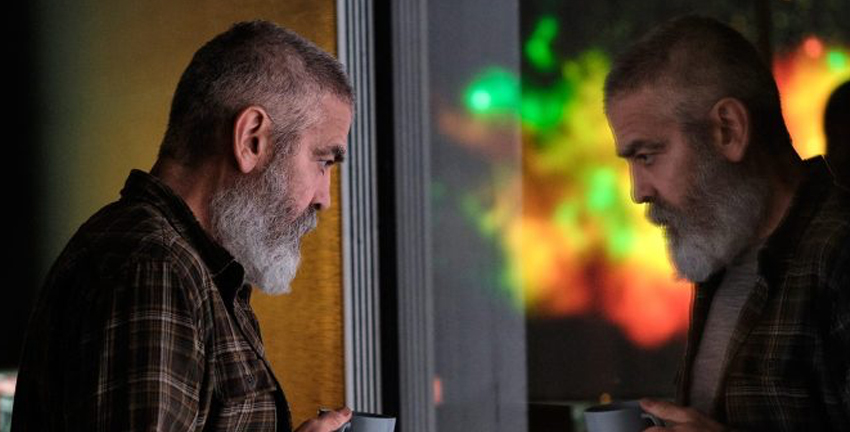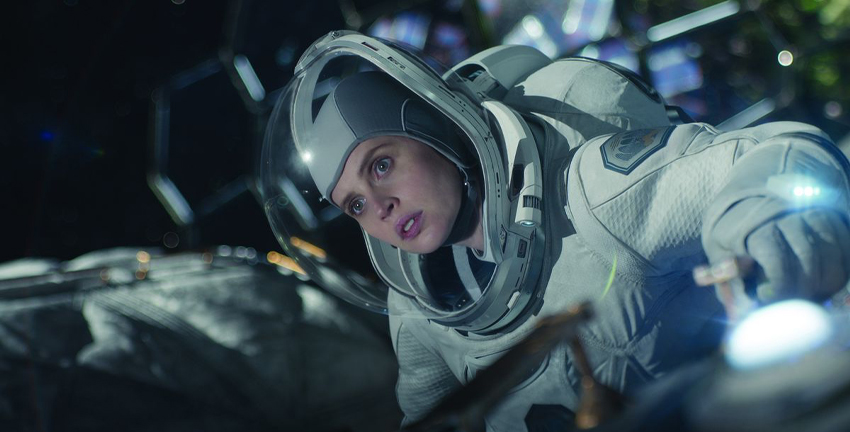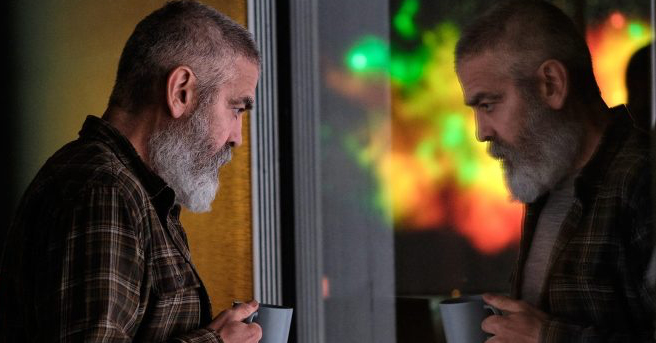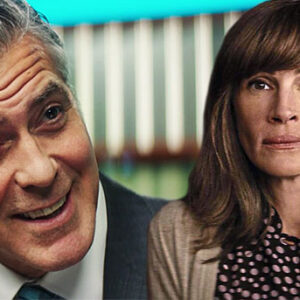Last Updated on August 2, 2021
PLOT: After a world-wide, apocalyptic event, the earth’s air has become poisonous. A space shuttle crew seeking out a new home for the human race is about to return home from their mission, but unable to reach anyone, they’re unaware that the earth is now inhabitable. Enter a lone scientist (George Clooney) living in the arctic, where the earth is temporarily breathable, who makes it his mission to warn the crew so that they avoid returning home to certain death.
REVIEW: George Clooney’s The Midnight Sky is being sold as The Revenant meets Gravity , thanks to the fact that it comes from the writer (Mark L. Smith) of the former and the star (Clooney) of the latter. In reality, this adaptation of Lily Brooks-Dalton’s “Good Morning Midnight” probably owes more to Stanley Kramer’s On The Beach (with Clooney even showing the shuttle crew watching it at one point) in that it’s a truly grim tale of humanity’s final days, with slow death a constant, creeping inevitability. It’s a bold movie to put out in the midst of a pandemic, but it’s also Clooney’s best film as a director since Good Night and Good Luck.

While some might take issue withe the fact that the movie is so clearly split in two, making it feel like two halves rather than one whole, Clooney manages a good balancing act between the two stories. Neither feels like anything he’s tried before as a director. I’ve always thought Clooney’s tendency to go for a Coen Bros tone in some of his earlier work never really came off, but The Midnight Sky is dead-serious and straight-forward. He’s never helmed a VFX-laden movie, but the CGI is terrific, with Clooney pulling off some really audacious shots, including a memorable sequence involving an astronaut suffering a zero gravity injury that turns their blood into bubbles (shades of Star Trek VI).
Clooney is also clearly interested more in the human drama of the premise rather than simply making an action film, although to be sure this produces some mixed results. On Earth, Clooney is paired with a silent child, Iris (Caoilinn Springall) and the relationship between the two does take on too much of a cutesy vibe at times, particularly in an early scene where they flick each other with peas. There are also too many flashbacks to his character’s youth (where he’s played by Star Trek: Discovery’s Ethan Peck) that make the inevitable third act twist a little too easy to predict. Still, Clooney is clearly trying to stretch and his performance, as the over-the-hill, terminally ill scientist who’s become the unlikely “Last Man on Earth” is gripping.

However, the stuff on board the space shuttle is arguably more compelling, as everyone waits for news from Earth, with some (including Kyle Chandler’s navigator) having family back home. Felicity Jones plays a newly pregnant crew-member (she was pregnant in real life) which adds urgency to their story, while David Oyelowo is the stalwart captain, a role Clooney himself might have played a couple of years ago.
While a touch uneven, the film is aided by not only the VFX, but also the top-shelf cinematography by Matin Ruhe, while Alexandre Desplat works overtime to give the film emotional heft. At just under two-hours, it’s quickly paced and surprisingly dark for a Christmastime Netflix release (especially during a pandemic), but it still ranks as one of Clooney’s stronger efforts as a director and well worth checking out.





















Follow the JOBLO MOVIE NETWORK
Follow us on YOUTUBE
Follow ARROW IN THE HEAD
Follow AITH on YOUTUBE